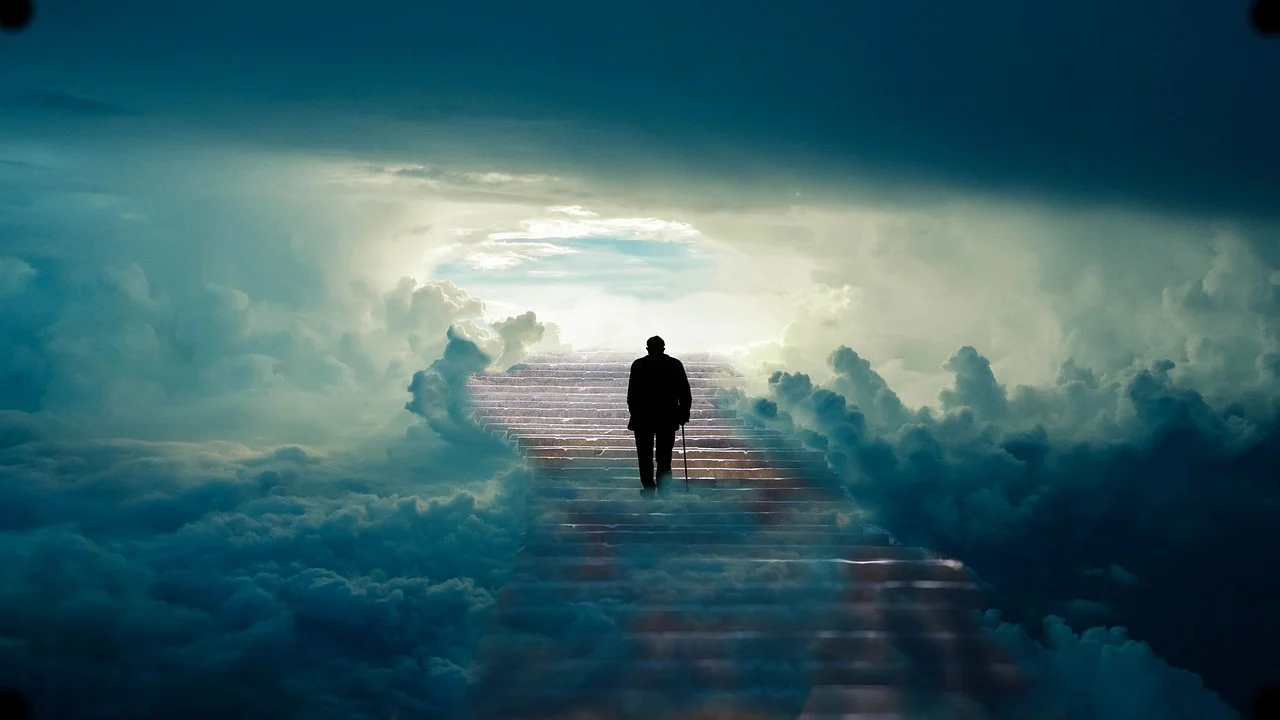Dr. Hugh Ross, a Canadian astrophysicist, identifies five key factors that he believes support the existence of the afterlife, which may suggest a life after death.
Many people think that death marks the end of consciousness—a point where existence ceases irrevocably. Others believe that it is merely a transition to another form of existence, where the soul leaves the body and enters the afterlife.
The question remains: is there any evidence that life exists after death? Dr. Hugh Ross, a Canadian astrophysicist and Christian author, mentions five key factors that he believes indicate the afterlife as a reality—he shared these insights with the Daily Mail.
However, let us not forget that the question of the afterlife has been one of humanity’s deepest debates throughout its history. Although ultimate proof remains elusive, Dr. Ross’s five pieces of evidence may suggest that we still do not fully understand the nature of reality itself.
The Boundaries of the Universe
Dr. Ross believes that beyond the dimensions of space and time as we know them, there exists a “causal agent”—a conscious force he identifies as Creator, responsible for the existence of the universe. One argument for this is the fact that the total extent of the universe remains unknown. Humanity can observe only a portion: the “observable universe,” which has a diameter of about 93 billion light-years and is continuously expanding. According to Dr. Ross, the fact that our observations have limits implies that something may exist beyond them. “Since mass exists in the universe, and general relativity reliably describes the motion of masses, it is logical to conclude that there is a causal factor beyond the dimensions of space and time,” he explains. Therefore, if something can theoretically exist beyond our sensory limits, it may suggest the presence of a spiritual dimension.
Biblical Accuracy and Prophecies
Dr. Ross’s second argument for the existence of the afterlife is the reliability of the Bible as a source—both in historical event descriptions and in previewing scientific principles. He cites the prophecies of the Old Testament, particularly those in the Book of Daniel, which accurately foretold the rise and fall of great empires like Babylon and Persia.
Moreover, he believes that some cosmological descriptions in the Bible align with modern scientific discoveries, such as the Big Bang theory. According to scripture, the universe had a starting point and is continuously expanding—similar to the current scientific consensus. Isaiah 42:5 states: “Thus says the Lord: He who created the heavens and stretched them out.” Dr. Ross believes these statements imply that the authors of the Bible possessed knowledge that exceeded human understanding at the time, suggesting the influence of a higher intelligence.
UFO Phenomena
Another interesting piece of evidence may be the sightings of unidentified flying objects (UFOs) and “unidentified anomalous phenomena” (UAP). In certain cases, these sightings have caused measurable physical effects, yet the observed objects seem to contradict known laws of physics.
According to Dr. Ross, these phenomena may indicate the existence of other dimensions that transcend our physical reality. An example is the famous 2004 “Tic Tac” UFO incident, where the object performed movements that are deemed impossible based on our current physical knowledge. If these phenomena do not exist within our space-time framework, it may hint at the existence of a hidden, invisible realm.
Near-Death Experiences (NDE)
The fourth piece of evidence could arise from the study of near-death experiences (NDE). There are numerous cases where individuals declared clinically dead later reported vivid and detailed experiences. These experiences often include sensations of leaving the body, passing through a light tunnel, or even glimpsing future events.
Particularly noteworthy is that these experiences can occur under conditions when brain function is ostensibly halted, such as cardiac arrest or deep sedation. Dr. Ross acknowledges that some NDE phenomena might be explained by the effects of oxygen deprivation; however, many details remain inexplicable. The fact that these experiences are similar regardless of culture or religious background suggests that consciousness may not merely be a product of brain activity, but could persist after death.
The Power of Prayer
Finally, Dr. Ross points out that some scientific studies suggest measurable effects of prayer. Certain research has concluded that those patients who were prayed for—even without their knowledge—recovered more quickly from surgeries or illnesses than those who were not.
While many are skeptical regarding the effects of prayer, and results are not always clear-cut, Dr. Ross believes these phenomena may indicate the existence of a higher power beyond the physical world. Critics argue that such studies face methodological challenges, but Ross considers this also a possible piece of evidence for a transcendent dimension. (CIVILHETES)


